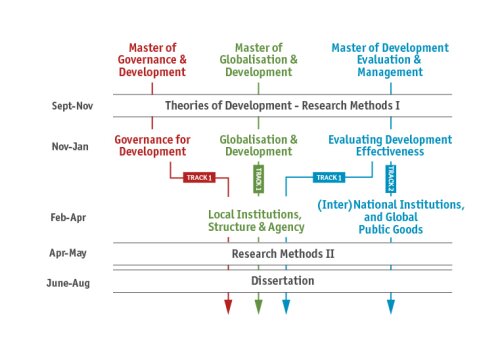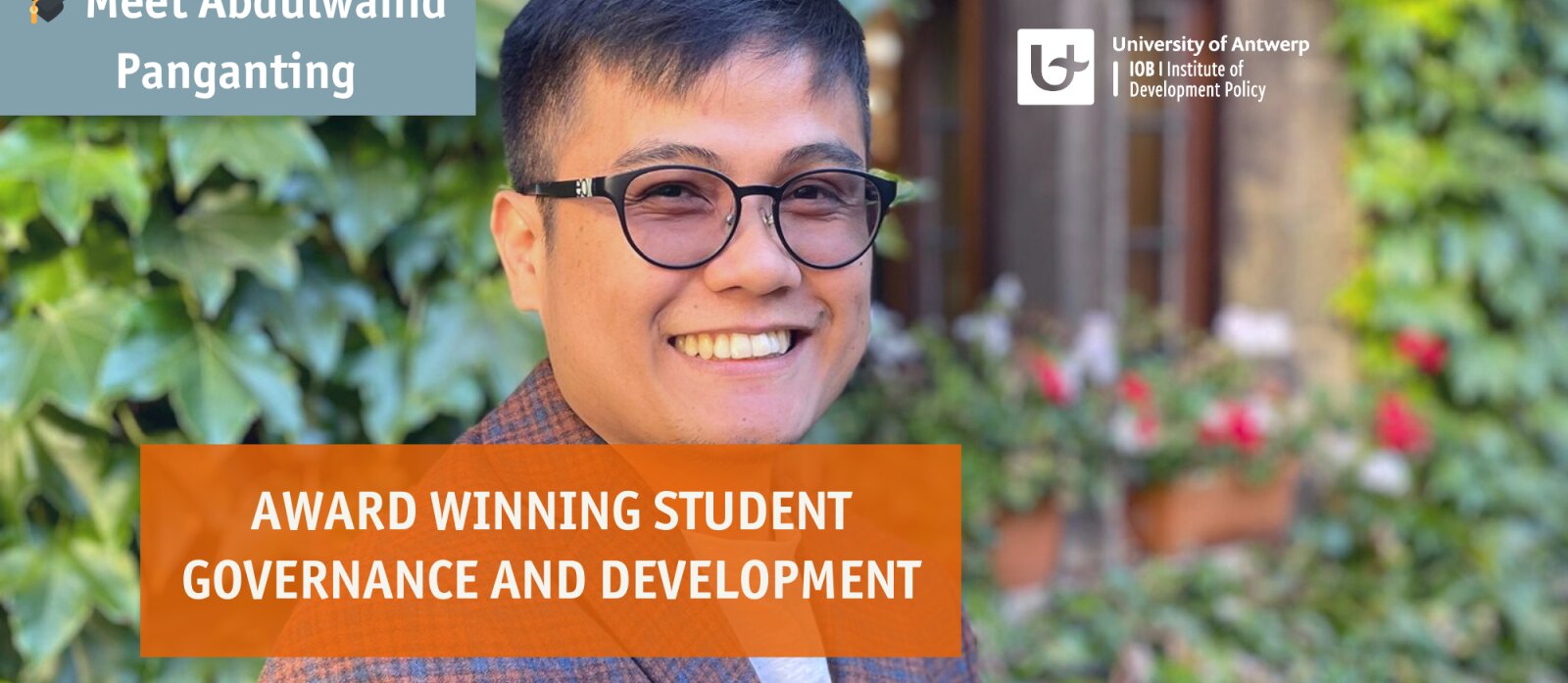1. Are you fascinated by processes of state formation, state reconstruction, peace-building, and conflict resolution?
2. Do you want to learn more about how governance at the local, national, regional and international levels contributes to sustainable development?
The Institute of Development Policy (IOB) at the University of Antwerp brings together like-minded individuals from across the world who share your concerns and aspirations.
In the Advanced Master of Governance and Development, you'll explore the relationship between governance and conflict, learn to critically analyze governance challenges, and gain the skills to conduct research on governance challenges at different levels. You'll also engage in current debates about global development, and leave the programme equipped with a deep understanding of how governance contributes to sustainable development.
Programme information

Theories of Development
This course introduces the major political, cultural and economic perspectives shaping development thinking. Students examine how politics and power, culture and agency, institutions and markets, and concepts such as poverty, inequality and well-being influence development trajectories. Across four thematic units, you gain a multidimensional, critical and decolonial understanding of development and its determinants.
Research Methods I
Research Methods I provides the foundations of knowledge production in development studies. Students explore key research paradigms, learn to critically read and assess academic work, and reflect on ethics and positionality. The second half of the course focuses on research design, introducing both quantitative and qualitative approaches, sampling strategies, measurement, and questions of validity and reliability.
Governance for Development
This course examines how states, institutions and legal–political systems shape real-world development outcomes. Students analyse the political economy of governance, the workings of state power, corruption, violence, democracy, human rights and legal pluralism. Through theoretical debates, empirical cases and applied exercises, you learn to assess governance systems, policy implementation and state–society relations.
Local Institutions, Structure & Agency
Focusing on the local level, this course explores how everyday institutions, norms, power relations and collective action influence development processes. Topics include gender, local governance, migration, community-driven initiatives and citizen-led accountability. Field-based components—such as community monitoring in Tanzania or the Justice Co-Laboratory in Antwerp—allow students to apply concepts in real contexts.
Research Methods II
Research Methods II offers applied, hands-on training through a modular set of quantitative and qualitative units. Options include data handling, descriptive statistics, regression and causal inference; qualitative interviewing and fieldwork design; discourse analysis; NVivo-based data analysis; and transformative methodologies such as participatory, feminist and decolonial approaches. An optional research stay in Tanzania or the DR Congo provides immersive field experience within ongoing research projects.
Master Dissertation
The programme concludes with a written dissertation, defended orally, allowing students to apply theoretical and methodological skills to a governance and development issue of their choice.
Examples of topics studied
- How weak governance contributes to conflict in fragile states (e.g., South Sudan, Afghanistan).
- The role of local governance in post-conflict reconstruction (e.g., Rwanda’s reconciliation efforts).
- Decentralization and public service delivery in developing countries (e.g., education reforms in Kenya).
- Anti-corruption policies and their impact on economic development (e.g., transparency initiatives in Nigeria).
- The effect of international organizations (e.g., UN, World Bank) on national governance structures.
Real-world applications
- Policy Advisor in a Government or International Organization → Advising on governance reforms to improve stability and development.
- NGO Programme Manager → Designing interventions that promote good governance and conflict resolution.
- Researcher or Analyst → Conducting studies on governance challenges and their impact on development.
Example career path
A graduate may work at the United Nations Development Programme (UNDP), advising governments on governance reforms to strengthen democratic institutions and prevent conflict.
